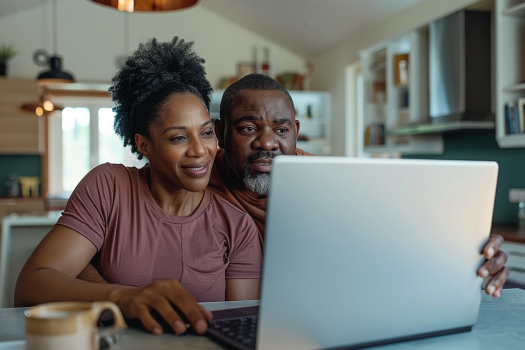The Resources Home page serves as a comprehensive repository, providing a centralized location for sharing all essential files and documents with your audience. This dedicated page ensures that every uploaded file is readily accessible to your guests with just a simple click.
To get started, click on the Content menu option, and select the Resources tab. From here, click on Resources Home.
Every new page will require the same general information, which will also be included on its Feature Card.
As you fill in the details above, a Sample Preview dynamically updates to give you a sneak peek of how your page will appear once shared. This is an example of what a Feature Card looks like.
On this tab, the fields below will help you further design your Resource Home page.
This section is all about the design of your page. You can upload images or link to a video to feature on this page. Depending on the media type and positioning, you can control how visitors will first encounter your page:
Not only can you preview your Resource Home page from this tab, but you can also make additional changes to the overall page layout.
To build on this page and add additional sections, follow the steps below:
To rearrange a block, use your mouse and hold left click on it, then drag the block above or below another block. Let go of left click to set the block in place. Learn more about the available page blocks.
The Visibility tab is where you make the page visible to your guests.
Status
You have the flexibility to change the page status at any time. Additionally, you can schedule when a page goes live or set it to archive automatically at a future date and time.
Schedule a Publish Date: Enter the date and time you wish to have the page become visible to your guests. Then set the status to Live and save. Note, a static page must be linked somewhere in your CommuniBee site in order to be accessible to guests, such as to the Top Menu, or to an existing page via a side item block.
Automatically Hide: Enter a Hide After date and time and your page will be automatically archived once this date is reached. This makes it inaccessible to guests and ensures the content on your website stays up to date.
Tip: To get a comprehensive understanding of the many settings and options available, consider setting your page status to Live after you’re done with the General tab. This action unlocks the ability to click on the Preview tab just below the Visibility tab. Additionally, an Overview tab will appear which includes a View option. Both of these options will allow you to see your page as it would appear to your website visitors. Continuously reviewing your page from a guest perspective whenever you make a change is the simplest and most effective way to ensure your page looks just right!

CommuniBee does not display active communities right now. If you are looking to view a specific community, you will need the community’s website URL.
Be sure to check your email to see if you received an invitation to the community; otherwise, you should contact a community admin for access.
Still stuck? Email us at support@communibee.ca